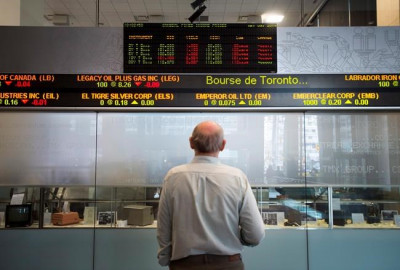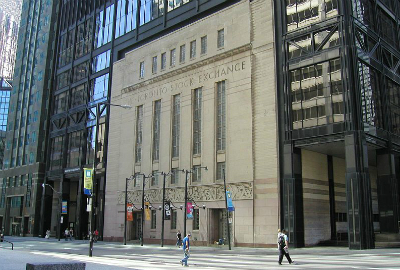TORONTO — Canada’s main stock market is expected to recover in 2019 from its worst performance in a decade that saw the exchange lose 15 per cent amid extreme volatility, plunging oil prices and geopolitical uncertainty, say markets experts.
“Our outlook for 2019 is one of cautious optimism,” says Candice Bangsund, portfolio manager for Fiera Capital.
She expects equities will outperform bonds as global growth remains relatively healthy with a recession unlikely before late 2020.
Markets are in the later stages of the economic cycle marked by the longest bull run in history. That’s typically a time when investors move from growth-oriented stocks to defensive names in sectors such as financials, materials, industrials and energy.
“This will be inherently positive for the TSX,” Bangsund said, predicting low double-digit returns and an even stronger performance for emerging markets. Bangsund doesn’t see much upside for U.S. markets.
“This is where we see an opportunity to catch up but it’s not going to be a long-term trade. By the back half of 2019 we’re going to have to be taking profits and positioning for 2020 a little bit more of a cautious outlook.”
The S&P/TSX composite index was down 15 per cent in 2018 from its January opening of 16,209.13, with just a few trading days remaining in the year. That would make it the worst year since the market dropped 35.2 per cent in 2008 during the Great Recession.
The market corrected in February and fell again in October after hitting a peak of 16,586.46 in mid-July. It then fell in December, hitting a two-year low of 13,776.88 on Dec. 24.
“It’s been a difficult year for an investor to make money even in a typical balanced portfolio,” Bangsund said in an interview.
The financial sector, the largest on the TSX accounting, dropped nearly 15 per cent. Energy, the second largest, plummeted by almost 32 per cent as the price of West Texas Intermediate dropped by about 26 per cent and Canadian crude prices were punished by a lack of pipeline capacity to get oil out of Canada.
Materials fell about 14 per cent on lower gold and copper prices amid a rising U.S. dollar.
The technology sector rode the same wave as the American exchanges by gaining about five per cent, but it accounts for just three per cent of the TSX. The small health-care sector was down 14 per cent on extreme volatility in cannabis stocks as Canada legalized recreational pot consumption in October.
Despite the December energy selloff that saw WTI fall to a low of US$42.36 per barrel, Bangsund has a target price of US$70 per barrel for WTI in 2019, while others see it ranging between the mid-$50s to mid-$60s.
“We’re quite bullish on oil prices and as a result that feeds into our bullish call on the Canadian dollar and as well on the Canadian stock market,” added Bangsund.
The year was notable for geopolitical uncertainties ranging from the Italian budget showdown with the European Union to Brexit. But the top item impacting markets was the protectionist agenda by the Trump administration that targeted the renegotiation of a North American Free Trade Agreement, threatened auto tariffs and launched a confrontation with China.
U.S. markets were also headed to their worst year in a decade despite being propelled early in the year by the tech sector and strong corporate earnings fuelled by federal tax cuts. Near year-end, the Dow Jones industrial average and S&P 500 index were each off by about 12 per cent after gaining 25 per cent and 20 per cent respectively in 2017.
Returns in public markets will be challenged at least over the next couple of years amid rising interest rates and dampened global growth, predicts Kash Pashootan, CEO and chief investment officer at First Avenue Investment Counsel Inc.
“We’re not expecting a market meltdown or any sort of major decline, but at the same time we are not under the illusion that we’re going to have the same resilience and strength in equities that we’ve seen in the last few years,” he said.
Volatility that marked 2018 could continue next year, added Craig Fehr, Canadian markets strategist for Edward Jones.
“I don’t think it’s going to be necessarily a banner year,” he said. “I don’t think we replicate 2017 where we saw huge gains and very little downside but I do think that 2019 can be another good year for the equity markets.”
BMO chief economist Douglas Porter expects the TSX will outperform the S&P 500 next year, a reversal of it underperforming the U.S. exchange in seven of the past eight years.
“Typically, its fairly straightforward — when real commodity prices are rising, the TSX shines,” he wrote in a note. “However, with trade uncertainty reduced (USMC) and a lot of bad news on energy factored in, next year could see a rare win for the TSX, at least on a relative basis.”
Ross Marowits, The Canadian Press
Share This:





 CDN NEWS |
CDN NEWS |  US NEWS
US NEWS 





































COMMENTARY: Alberta’s World-Class Regulator and Regulatory System – Brian Jean, Minister of Energy and Minerals for Alberta